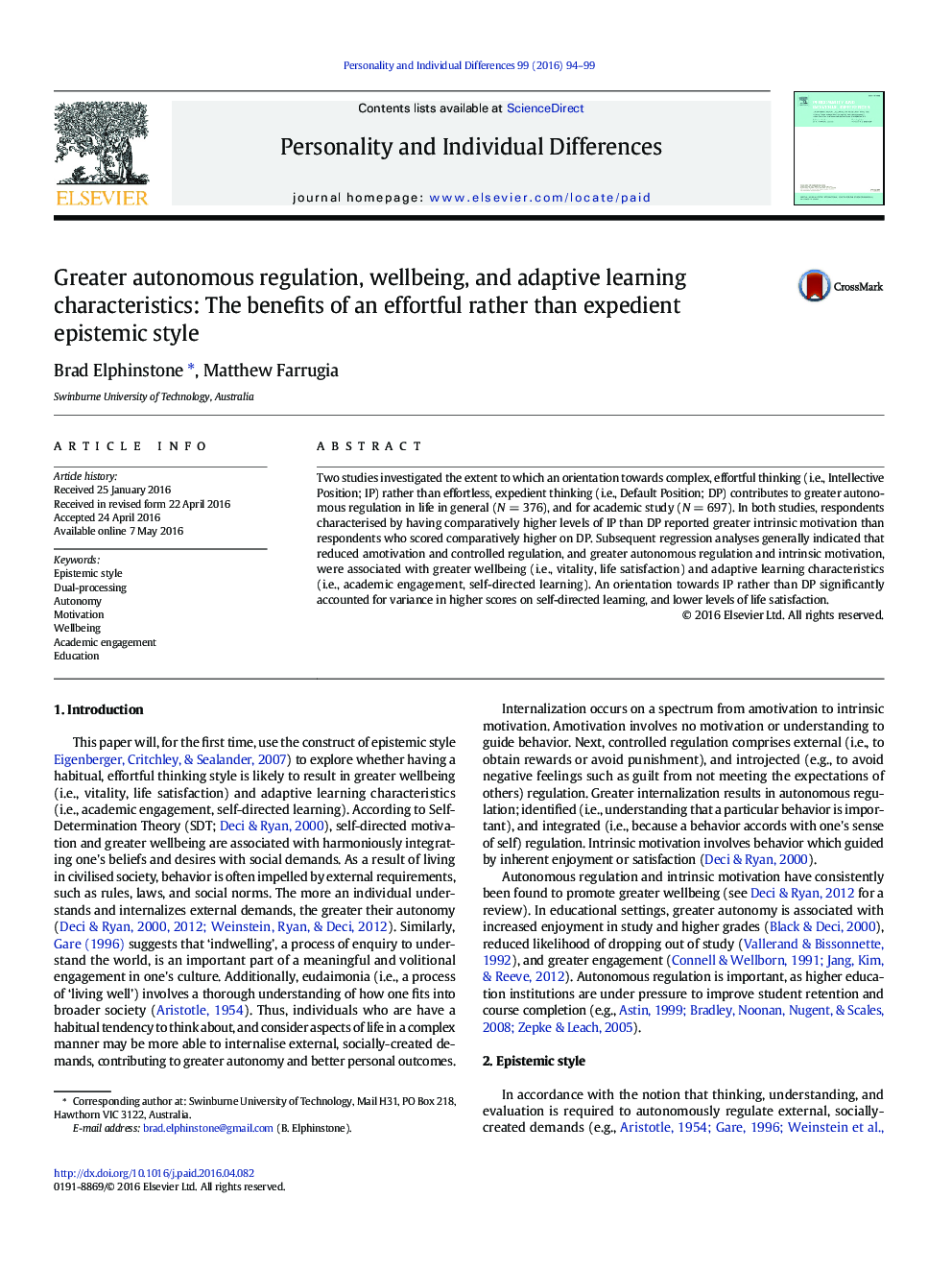| Article ID | Journal | Published Year | Pages | File Type |
|---|---|---|---|---|
| 889703 | Personality and Individual Differences | 2016 | 6 Pages |
•Differences in habitually effortful or effortless epistemic styles were examined.•Effortful thinkers reported greater intrinsic motivation for study and in general.•Effortful thinking contributed to reduced life satisfaction, greater self-directed learning.•Autonomous regulation contributed to greater vitality and life satisfaction.•Autonomous regulation contributed to greater engagement and self-directed learning.
Two studies investigated the extent to which an orientation towards complex, effortful thinking (i.e., Intellective Position; IP) rather than effortless, expedient thinking (i.e., Default Position; DP) contributes to greater autonomous regulation in life in general (N = 376), and for academic study (N = 697). In both studies, respondents characterised by having comparatively higher levels of IP than DP reported greater intrinsic motivation than respondents who scored comparatively higher on DP. Subsequent regression analyses generally indicated that reduced amotivation and controlled regulation, and greater autonomous regulation and intrinsic motivation, were associated with greater wellbeing (i.e., vitality, life satisfaction) and adaptive learning characteristics (i.e., academic engagement, self-directed learning). An orientation towards IP rather than DP significantly accounted for variance in higher scores on self-directed learning, and lower levels of life satisfaction.
